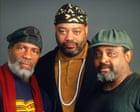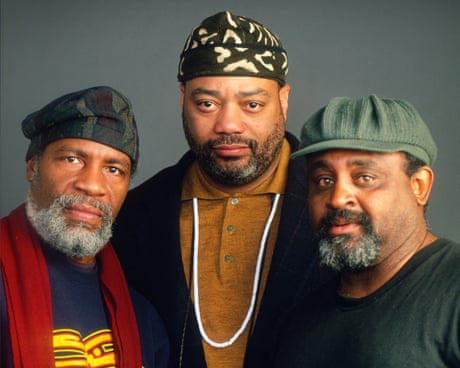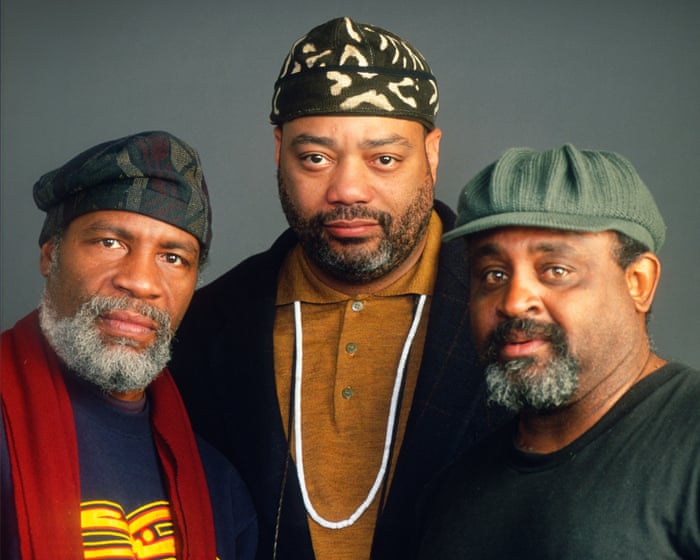Hip-hop godfathers the Last Poets: ‘In times of great chaos, there’s opportunity’
The two remaining members of the groundbreaking, politically revolutionary group talk about the state of hip-hop and the US government’s attacks on people of color
For the first time in 35 years, Billboard’s Hot 100 chart does not include a rap song among its top 40 hit records. Anyone who’s been listening to the music for at least that long can list myriad reasons why that’s now the case: all the beats sound the same, all the artists are industry plants, all the lyrics are barely intelligible etc. For hip-hop forefather Abiodun Oyewole, though, it boils down to this: “We embraced ‘party and bullshit’, my brother.”
Fifty-seven years ago, on what would have been Malcolm X’s 43rd birthday, Oyewole cliqued up with two young poets at a writers’ workshop in East Harlem’s Mount Morris Park (now Marcus Garvey Park) to form what would become the Last Poets, a collective of bard revolutionaries. They outfitted themselves in African prints, performed over the beat of a congo drum and advocated for populism in their verses. The group has had many configurations over the years, but Oyewole, Jalal Mansur Nuriddin and Umar Bin Hassan abide as the standout members. The trio is all over the band’s self-titled first album – which was released in 1970 and peaked at No 29 on the Billboard 200. Their follow-up album, This Is Madness, made them ripe targets for J Edgar Hoover’s Cointelpro campaign against the emerging figures the then-FBI director deemed politically subversive. Notably, Oyewole could not contribute to that album because he had been incarcerated for an attempted robbery of a Ku Klux Klan headquarters, serving two and a half years of a three-year sentence. (He was trying to raise bail for activists who had been arrested for striking back at the Klan.)
Continue reading...
© Photograph: Gie Knaeps/Getty Images

© Photograph: Gie Knaeps/Getty Images

© Photograph: Gie Knaeps/Getty Images